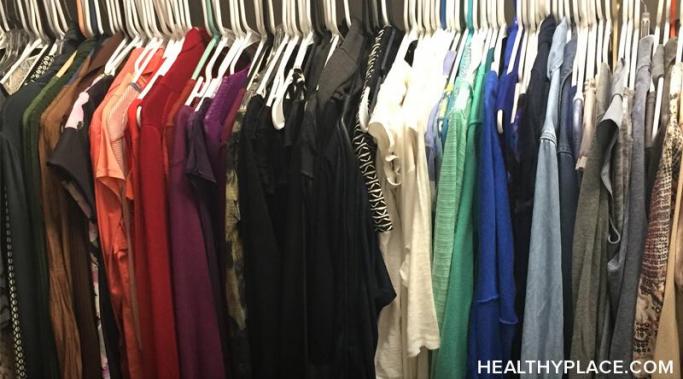Even before I was diagnosed with attention-deficit/hyperactivity disorder (ADHD) or knew the symptom of ADHD overstimulation could result in a dramatic panic attack,1 I'd been nervous about attending my first music festival.
Symptoms of ADHD
When I was undiagnosed with attention-deficit/hyperactivity disorder (ADHD), and I'd gotten into arguments with romantic partners, I regularly found myself unable to form a coherent sentence. I wanted to say so many things, but trying to transfer those thoughts from my head to my mouth left me feeling like I'd eaten a too-large spoonful of mashed potatoes and was now being asked to sing the national anthem live on television. My body would tense with anxiety. My mind would be a chaotic whirlwind of TV static, and when I opened my mouth, all that came out was a long, irritating beep letting everyone know the channel was not accessible.
My attention-deficit/hyperactivity disorder (ADHD) diagnosis should have been a bipolar disorder diagnosis. I've thought I lived with ADHD for 14 years. Here's my story.
Attention-deficit/hyperactivity disorder (ADHD) can often lead to boredom. It can also result in discovering exciting methods to counter that discontent. In certain ways, I get bored less often than friends who do not have the condition, and what someone considers uninteresting is entirely subjective. Still, it appears I am not alone when it comes to ADHDers who absolutely despise being bored.
A large number of hoarders have attention-deficit/hyperactivity disorder (ADHD) or ADHD-like symptoms. Hoarding becomes a disorder when sorting through and getting rid of possessions causes extreme anxiety. Previously considered a subset of obsessive compulsive disorder (OCD), hoarding is now its own disorder. Many hoarders still have OCD, and studies find that ADHDers are also very susceptible to the condition.
About half of those with attention-deficit/hyperactivity disorder (ADHD) struggle with auditory processing disorder (APD). Their sense of hearing may be fine, but they can have a hard time making out what someone is saying. I have always struggled to follow conversations in noisy areas and was interested in learning more about how this phenomenon relates to ADHD.
Many people with attention-deficit/hyperactivity disorder (ADHD) have experienced a mental breakdown. I often use the phrase to describe how I feel when I lose control of my emotions and ability to think clearly. This can be triggered by seemingly small events, but usually it is the straw that breaks the camel’s back, one more problem added to a pile of challenges. I would like to discuss what mental breakdowns actually are, why people with ADHD might be particularly susceptible to them, and how we can deal with them.
Attention-deficit/hyperactivity disorder (ADHD) can make shopping for clothes difficult. Some with ADHD love shopping for clothes, while others (like myself) find it tedious. Whatever the case, our sensitivity, impulsiveness, and prioritizing problems throw a wrench into the works. Since I am currently replacing my wardrobe, bit by bit, I would like to offer a few suggestions to make ADHD shopping easier.
I think it was Jessica McCabe of "How to ADHD" who referred to herself, someone with attention-deficit/hyperactivity disorder (ADHD), as an ADHD late bloomer. I have found numerous forums where ADHDers wonder whether (or assert that) they are late bloomers. There are several reasons why people with ADHD might be considered late bloomers and there are reasons why being an ADHD late bloomer is not such a terrible thing.
Both children and adults with attention-deficit/hyperactivity disorder are more prone to getting into accidents than the average person. Someone I know who has ADHD almost fell off of a climbing wall and later flipped onto his helmeted head from a bicycle, both during gym class. Several studies have shown that drivers with ADHD are perhaps 50% more likely to get into car accidents than those without the condition.1 There are a number of reasons for these results, and, fortunately, a few things that can be done to address these risks.









